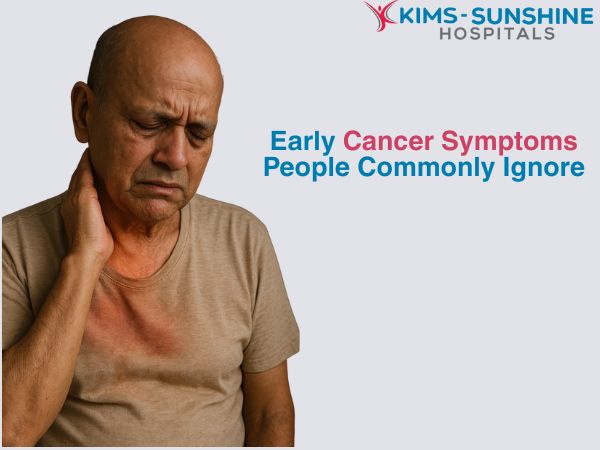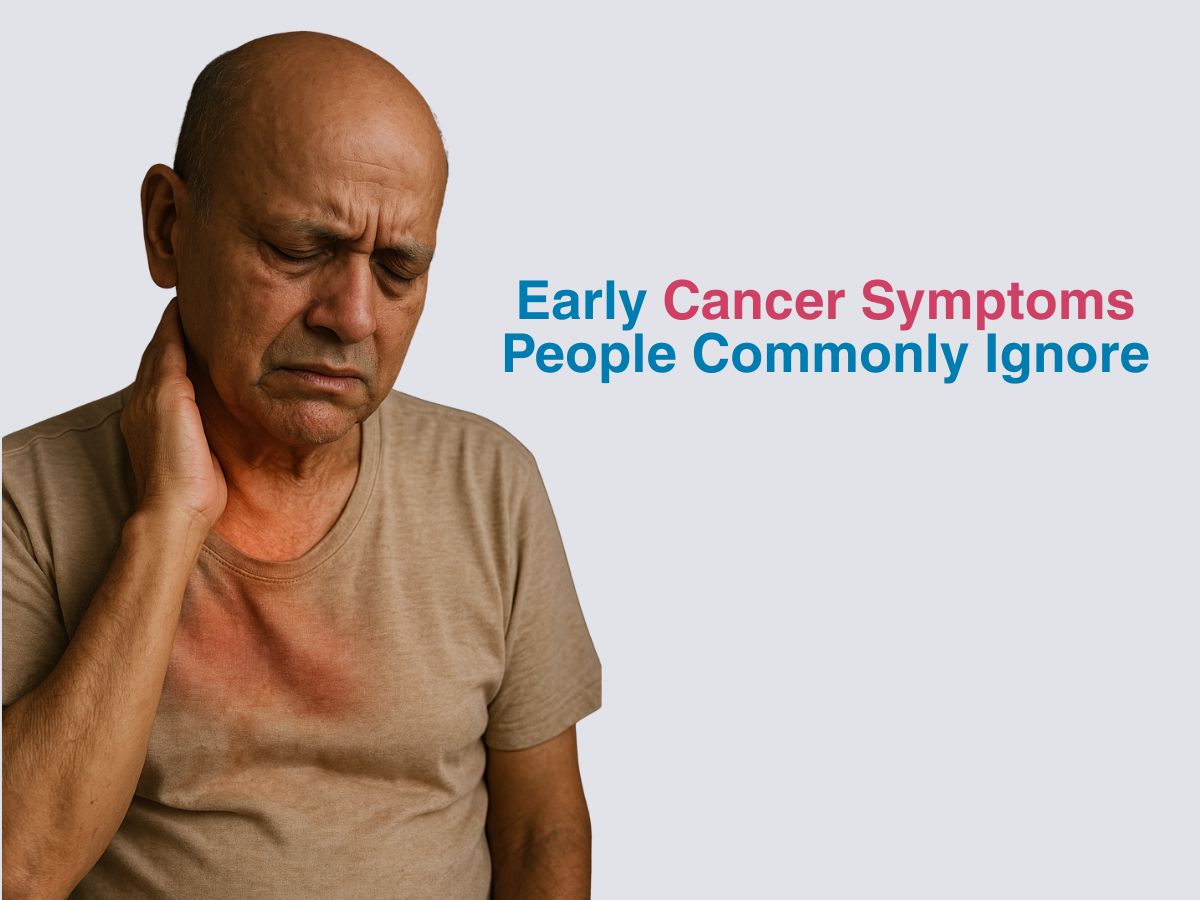
Early Cancer Symptoms People Commonly Ignore
 Cancer is the second leading cause of death worldwide. However, with better and advanced cancer screening, people are living many more years even after being diagnosed with the dreadful disease. By undergoing routine check-ups and regular screenings, you can combat the disease in its earlier stages when it’s more likely to get treated. For doing so, it is important to understand the body’s tell-tale signs that may indicate the development of cancer.
Cancer is the second leading cause of death worldwide. However, with better and advanced cancer screening, people are living many more years even after being diagnosed with the dreadful disease. By undergoing routine check-ups and regular screenings, you can combat the disease in its earlier stages when it’s more likely to get treated. For doing so, it is important to understand the body’s tell-tale signs that may indicate the development of cancer.
Common cancer symptoms people miss
Some of the early signs of cancer that are often ignored by people include the following:
- Unexplained weight loss: If you are suddenly losing a lot of weight over a period of time, it may be a cause for alarm. It is advisable to immediately consult your healthcare provider under such circumstances to nip cancer in its budding stages.
- Fatigue: If you are developing cancer, one of the earliest signs your body shows is that of extreme fatigue. This fatigue is not similar to the one you have after a long day but one that does not get better even after having adequate rest. In cancer, the body’s nutrients are used by the cancer cells to grow and divide, hence making you feel extremely tired.
- Fever: Fever is usually a common symptom of cold and flu. It becomes a concern only when you experience recurrent episodes of fever. Fever that comes mostly at nights, with no other signs of infection, accompanied by night sweats should not be overlooked.
- Pain: Pain is a symptom associated with multiple health problems. If the pain is persistent, it can hint towards an underlying disease such as cancer. Pain due to cancer may be because of metastasis of cancer cells, chemicals released in the body due to cancer, or a tumor or mass pushing on an area of your body.
- Skin changes: Development of jaundice (yellowing of eyes and fingertips) can be one of the early signs of infection or cancer. If you have moles on the skin which change in size or shape, it can be a cause for alarm.
- Changes in bowel or bladder habits: Major changes in your bodily functions can be indicative of cancer. Persistent constipation or diarrhea, black or red colored stool, and frequent urination may be signs of colon cancer, prostate cancer, or bladder cancer.
Other than the above mentioned symptoms, there are few more persistent symptoms that could mean cancer. These include shortness of breath, hoarseness of voice, bleeding, difficulty swallowing or feeling of fullness, and unusual swelling or lump anywhere in the body. If you notice any of the above symptoms, it is important to consult your healthcare provider immediately.
How to spot cancer in early stages
Cancer screening and detection play a major role in reducing the incidence of cancer by detecting the disease even before symptoms become evident. There are certain cancer screening tests that can detect specific cancers. They are:
- Mammography for breast cancer
- Colonoscopy and sigmoidoscopy for colorectal cancer
- Pap smear and HPV testing for cervical cancer
- Low-dose CT scan for lung cancer
When to see a doctor for possible cancer signs
If you observe any of the above mentioned symptoms, you should immediately consult your doctor. Even if you do not exhibit any symptoms but are concerned about the possibility of developing cancer in the future, you should consult your healthcare provider regarding cancer screening tests that you can undergo as a preventive step.






